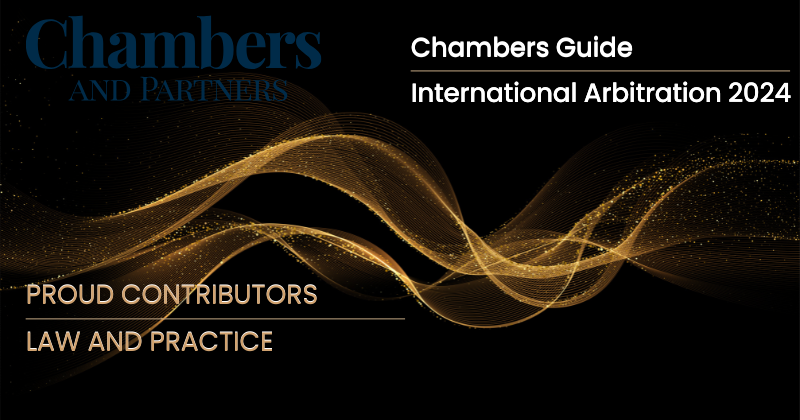A banner headline touching on a mega corruption scandal is an all too familiar feature in Kenyan newspapers. Similarly, irregularities in the conduct and award of public tenders are commonplace in the country, so much so that the sarcastic jibe, “lipa kama tender” (which translates to pay like a tender) is often directed at Government. The corruption vice has an obvious adverse impact on the economy and is an impediment to business where there is an unspoken rule that “facilitation” payments and other inducements are necessary in order to obtain certain services or business opportunities. Sadly, the country ranked 145 out of 176 countries on Transparency International’s Corruption Perceptions Index 2016.
There is really no shortage of legislation meant to tackle corruption in Kenya, as Parliament has enacted the Anti-Corruption and Economic Crimes Act, 2011, the Ethics and Anti-Corruption Commission Act, 2011 and more recently, the Bribery Act, 2016 (the Act). The Act came into operation on 13th January 2017 and its purpose is to govern the prevention, investigation and punishment of bribery.
Offences under the Act
The Act prescribes that it is a bribery offence where a person offers, promises or gives financial or other advantage to another person who knows or believes the acceptance of that advantage would constitute the improper performance of a function or activities.
An advantage has been defined to include money, loan, fee, reward, office, employment, contract, release/discharge of any loan or liability, as well as protection from any penalty including disciplinary penal proceedings. It is important to note that it does not matter whether the person to whom the advantage is offered, or promised, or given is the same person who is required to perform the function. This essentially aims to place liability on any person involved in connection with the impugned activity.
One would imagine that receiving a bribe only entails the actual receipt of the advantage. However, the Act provides that a mere request or an agreement to receive the advantage also constitutes an offence. The inverse also applies where the recipient of the bribe requests for or agrees to receive or accepts an advantage and the request, agreement, or acceptance constitutes the improper performance of a relevant function by that person.
It does not matter whether the recipient requests for, agrees to receive, receives or intends to request for the advantage directly, or through a third party, or whether the advantage is intended for the benefit of the recipient or another. Further, knowledge by the person giving the bribe that the performance of the function is improper is irrelevant.
The offence is deemed to be committed where it relates to a function or activity where the person is expected to perform it in good faith, be impartial or is in a position of trust. These functions are characteristic of many transactions in Kenya, for example approvals from Government agencies and procurement processes. A relevant function whether performed within or outside Kenya, includes any function or activity of a public nature, carried out by a State or public officer, or a foreign public official. The scope of the Act is quite wide as a relevant function has been defined to include any activity connected with a business or in the course of employment.
Responsibility of Organisations
Apart from an individual being held liable under the Act, where a person associated with a private entity bribes another with the purpose of obtaining business or an advantage for the private entity, that private entity is deemed to have committed an offence. This provision places investors and organisations on alert to be aware of the activities and conduct of their employees and to avoid liability being imputed on the organisation on account of an employee or agent.
In light of the above, the Act recognises the need for organisations to train their employees and agents and therefore places a mandatory obligation on public and private entities to put in place procedures for the prevention of bribery and corruption (prevention procedures). The Cabinet Secretary in consultation with the Ethics and Anti-Corruption Commission is to publish guidelines to assist in the preparation of prevention procedures.
A director or senior officer of a private entity is deemed to commit an offence under the Act if it is proved that failure of the private entity to put in place prevention procedures was done with their consent or connivance. It would however appear that no penalties apply to public entities such as the Government and statutory public bodies for failure to comply with the requirement to put in place prevention procedures. It is peculiar why public entities cannot be held liable in this respect, yet a majority of hurdles faced by investors is with respect to their dealings with public entities.
In addition to placing prevention procedures, there is an obligation on a person holding a position of authority in a public or private entity to report within twenty four (24) hours of any knowledge or suspicion of instances of bribery. Failure to do so constitutes an offence under the Act.
Whistle Blowers
The Act also recognises that for the effective prevention and investigation of bribery, some protection must be given to those persons with information relating to such activities. To this end, a whistle blower is protected from intimidation to provide information or give testimony in Court. Further, any adverse actions with respect to a whistle blower’s employment, for example, demotion, termination or unfavourable transfer is deemed to be an offence punishable by a fine of KES 1 million (USD 10,000) or imprisonment for a term not exceeding one (1) year.
Accessories to Bribery
Liability under the Act is not limited to the person offering the bribe, the recipient or person performing the function. It also attaches to a person or private entity that obtains property intended for use in a bribe, uses, transfers or has in possession property obtained in connection with a bribe or records such property in the financial records of the entity. Investors and organisations must therefore be cautious when investing or acquiring assets where property may have been obtained in connection with a bribe, and this underscores the importance of thorough due diligence.
Penalties
The investigation and prosecution of offences under the Act are to be governed by the already existing Anti-Corruption and Economic Crimes Act, 2011. A person found guilty of offering, receiving or assisting in the giving or receiving of a bribe shall be liable on conviction, to imprisonment for a term not exceeding ten (10) years or to a fine not exceeding KES 5 million (USD 50,000) or both. Further, if the person received a quantifiable benefit or another person suffered a quantifiable loss, a mandatory fine equal to five (5) times the amount of benefit or loss may be imposed.
Additional remedies imposed by the Court include an order compelling the person or entity to pay back the amount or value of the advantage received or an order for confiscation of property received.
Other penalties relate to the ability of the persons found guilty to continue in their roles. Persons such as directors and partners may be disqualified from serving in those positions for a period not more than ten (10) years. There are also restrictions on running for public office or transacting with the Government if found culpable of an offence under the Act.
Conclusion
Investors and organisations can now be protected under the provisions of the Act to eradicate hurdles previously faced in doing business. However, on the same token, individuals and private entities are placed on alert as they may be held liable if found to have engaged in activities in connection with bribery.
On the effectiveness of accountability and liability, only time can tell as a leaf may be borrowed or lessons learned from the effectiveness of prosecutions conducted under the Anti-Corruption and Economic Crimes Act, 2011.





